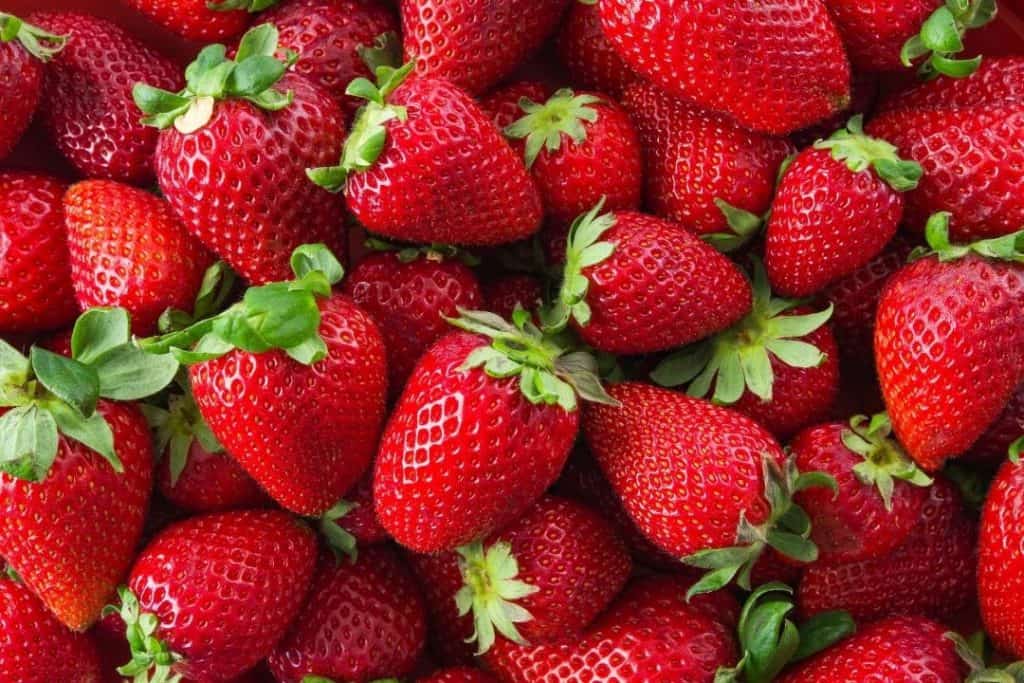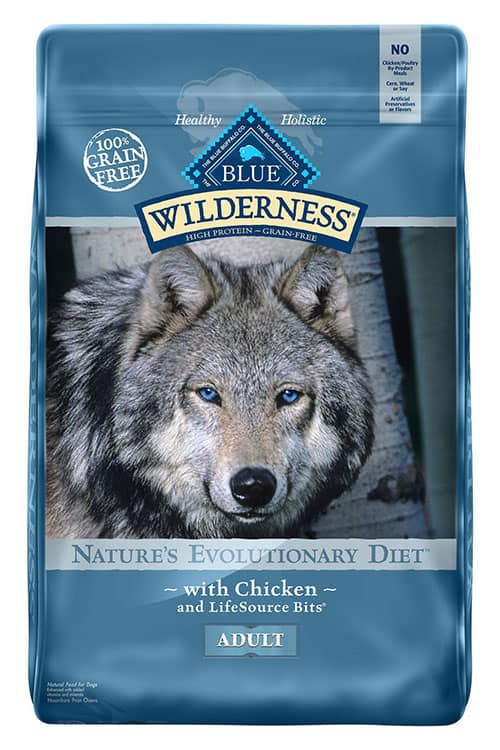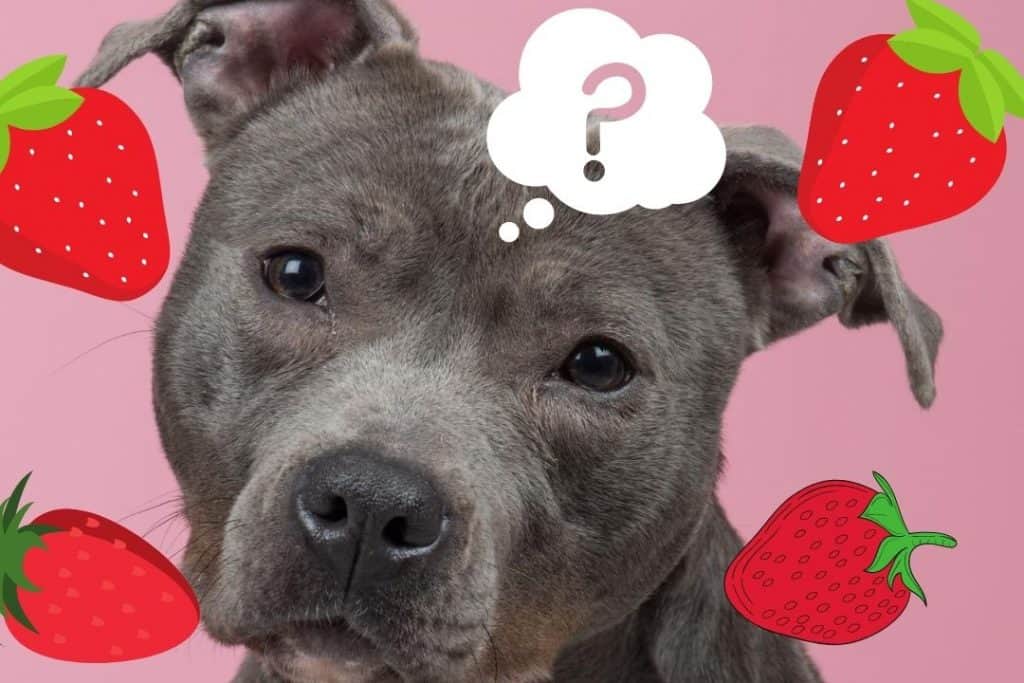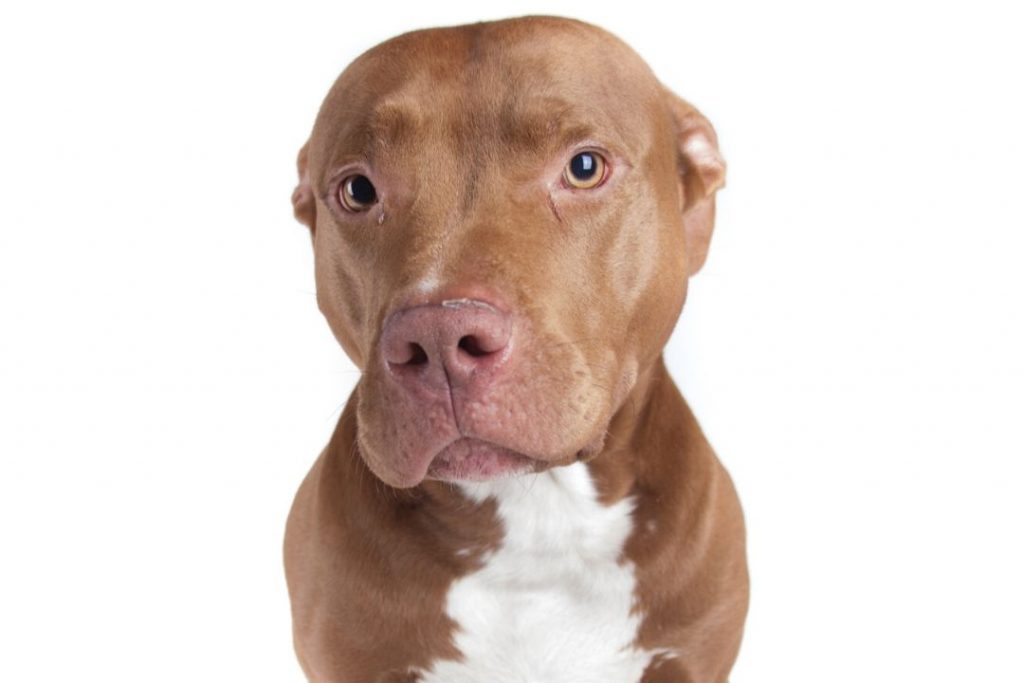This article may contain affiliate links, and I will be compensated if you make a purchase after clicking on my links (at no additional cost to you)
Strawberries are a great summer treat, and it’s tempting to share them with your pitbull. How can you resist those begging eyes? But, are they safe to feed to him?
Pitbulls can eat strawberries. Strawberries are one of the many fruits that are safe for your pitbull to eat. They’re full of Vitamin C, fiber, and potassium.
They can even whiten your pup’s teeth while he chews. Too many can be bad, though, so it’s important to feed them to your pet in moderation.
It’s important to know what is and isn’t safe to feed your pitbull. Let’s take a look at how strawberries and other fruits will benefit or harm your dog.
Benefits of Feeding Strawberries to Your Pitbulls
Strawberries are a great way to give your pitbull a treat. They’ll not only make your dog happy, but they’ll also boost your dog’s health on the inside and outside. Let’s take a look at those benefits.
Vitamin C
Vitamin C has the following benefits for dogs:
- Fights against free radicals
- Reduce cognitive aging
- Reduce inflammation
Dogs can actually produce Vitamin C in their liver, so supplementing it isn’t necessary. However, it doesn’t hurt to provide them extra Vitamin C since it helps them stay cognitively and physically young.
Vitamin C fights off free radicals that help fight off illness in both humans and dogs. Share a bowl of strawberries with your pup, and you’ll both be in good shape.
Fiber
Fiber does wonders for dogs. It aids in digestion and will help protect your dog against dangerous foods it may have eaten. Fiber is turned into fatty acid in your dog’s stomach thanks to bacteria located in the intestines.
The fatty acid that’s created prevents bad bacteria from growing and even lowers the risk of colon cancer. This is because the fiber speeds up digestion, and the fatty acid prevents bad stuff from growing.
So, toxic foods your dog may have eaten travel through your dog much quicker.
Needless to say, if your dog has diarrhea or constipation, giving them fiber will help move things along.
Potassium
Potassium is necessary for your dog’s health. It’s essentially the mineral that keeps your dog running smoothly. It keeps the following areas running normally:
- Heart function
- Kidney function
- Muscle function
- Proper digestion
A diet with high sodium content can cause your dog to lose potassium, which will lead to several health concerns. Some of them might be minor, like diarrhea, but it could become serious like malnutrition. Feeding your dog some strawberries can be a great way to give them potassium to keep their body healthy and functioning normally.
Whitens Teeth
Strawberries can whiten your dog’s teeth (and your teeth, too). This is because of an enzyme called malic acid. As your dog chews on a strawberry, the enzyme will rub up against their teeth and break up stains on their teeth.
Risks of Feeding Strawberries to Your Pitbull

As with most foods, strawberries should be fed to your dog in moderation. Having a few at a time is okay, but don’t let them chow down on an entire bowl. There aren’t too many risks involved, but these are worth being careful about:
Allergies
Dogs can be allergic to strawberries, just like humans can. If you’ve never given your dog a strawberry before, pay close attention to how they react. Take your dog to the veterinarian if they appear to have a reaction to it afterward.
Choking Hazard
Some dogs love to eat so much that they don’t care what they’re eating or how fast they eat it. This can lead to choking. Never let your dog have a whole strawberry, and don’t allow them to take a bite off one. Instead, cut them up into small bites. This is especially important if your dog eats fast or doesn’t chew enough.
Too Much Sugar
3.5 ounces (100 grams) of strawberries contain 4.9 grams of sugar. A diet containing high sugar levels can cause your pitbull to have digestive issues and teeth problems. If the food your dog usually eats contains sugar, be careful about how many strawberries you feed them, so they don’t end up eating too much.
If you choose to feed your dog strawberries, make sure they’re fresh. Never feed your pup strawberries in desserts or cans because the sugar content will be even higher. Even if you pick them off of a cake, they still have a chance of being far too sugary for your dog to eat.
Other Fruits That Are Safe for Pitbulls
Strawberries are often paired with other fruits. If you want to share your breakfast with your pitbull, you’re probably wondering what else you can give to them. Here’s a list of other fruits that are perfectly safe to give your pet:
- Apple: Remove the core and seeds first.
- Banana: High in sugar, so they should be fed in moderation.
- Blueberry: Full of antioxidants and great to use as a reward when training.
- Cantaloupe: Can keep your dog hydrated because of water content, but it’s high in sugar.
- Cranberry: Safe for dogs, but they might not like them because of how tart they are. Dried cranberries are also safe.
- Mango: Remove the pit first because it contains cyanide, which is highly toxic to dogs.
- Orange: Don’t feed your dog the peel because it can cause an upset stomach.
- Peach: Like the mango, the pit contains cyanide. Never feed your dog canned peaches because they have too much sugar.
- Pear: Remove the seeds because of cyanide. Feeding your dog pears might reduce the risk of having a stroke.
- Pineapple: The bromelain in the pineapple will help your dog absorb proteins better. Proteins should make up about 40% of your dog’s diet, so pineapple is a great treat for them.
- Raspberry: Feed in moderation. Raspberries are anti-inflammatory, but they contain xylitol, which is highly dangerous to dogs if they eat too much.
- Watermelon: Keeps your dog hydrated and provides plenty of vitamins and potassium.
Fruits That Aren’t Safe for Pitbulls
There are a few fruits that shouldn’t be fed to your dog. These fruits contain some kind of toxin that are generally safe for humans, but super dangerous for your pitbull and all other breeds of dogs.
- Avocado: Contains persin, which is toxic to dogs. Persin is found in the pit and skin but can leak into the flesh.
- Cherries: Contains cyanide, which can cause difficulty breathing, red gums, and dilated pupils if your dog consumes it.
- Grapes: Grapes should never be fed to your dog. Eating grapes can cause sudden kidney failure in any breed or size of dog.
- Tomato: Red tomatoes are thought to be safe, but the green parts are highly toxic to dogs because of solanine, a chemical that acts as a natural defender against pests for the plant. It’s better to just not feed your dog tomatoes to avoid the risk.
If your dog eats any of these fruits, it’s best to take them to the veterinarian right away. Depending on how much they ate, the effects could be serious and could cause your pup to die.
Dog Food Recommendation
If feeding your pitbull a raw diet of chicken is no longer on your to-do list, I have an article about food available. If you just want my top recommendation, here’s a commercial food that may work well for you.
Blue Buffalo Wilderness Grain-Free Dry Dog Food
If you’re looking for a commercial dog food that is similar to a dog’s diet in the wild or a raw diet, look into Blue Buffalo Wilderness.
Blue Buffalo Wilderness is a high protein option to fuel your pitbull and help build and maintain strong, lean muscle. It contains whole meat and LifeSource Bits, which are little nuggets jam packed with antioxidants, vitamins, and minerals.
Blue Buffalo Wilderness is also a great source of omega fatty acids for healthy skin and hair. It comes in chicken, salmon, and Rocky Mountain Recipe with red meat varieties to satisfy any pitbull’s taste buds.

Summary
Strawberries are a great treat to feed to your pitbull. They can whiten their teeth and provide them with vitamins and minerals. However, they should only be fed as an occasional treat because too many can be dangerous since they have high sugar content. Dogs shouldn’t consume a lot of sugar, so make sure you monitor how much sugar your dog consumes in a day.
Sources
- American Kennel Club: Fruits and Vegetables Dogs Can or Can’t Eat
- Healthline: Strawberries 101: Nutrition Facts and Health Benefits
- Wild Earth: Are Strawberries Good for Dogs? Benefits and Risks

I created this blog to share my passion for bullies, and help current and future pitbull owners with things like diet and education.
Hope you find it useful, don’t hesitate to drop a comment on my articles!



